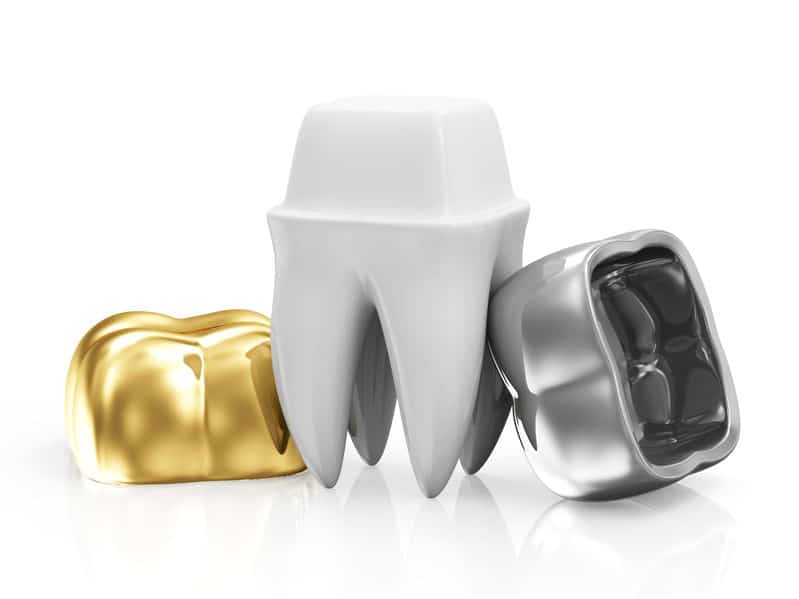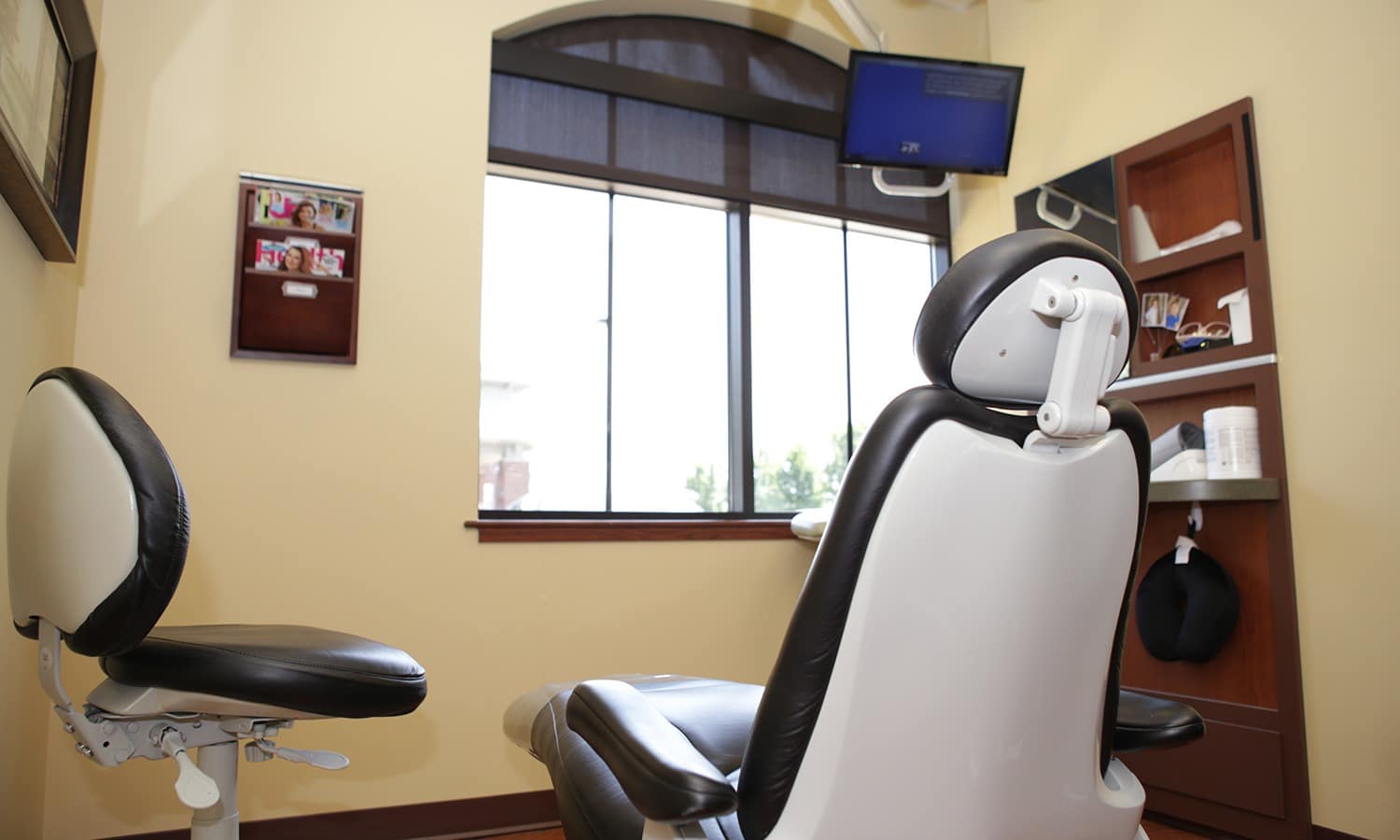Dental Crowns Repair A Damaged Tooth & Help You Smile Bright!
Dr. Klein and his friendly team at their Grandville, MI dentist office are ready to answer your questions and help you make the right choice for a dental crown to restore your smile.
If you need to get a crown on your tooth, know that you’re in good company.
More than 3 million are made annually, but there are still a lot of questions about the procedure. We can help!

What Is A Dental Crown?
A dental crown is a tooth-shaped “cap” that is placed over a damaged tooth.
Along with strengthening that damaged tooth, a crown can be used to improve its appearance, shape, or alignment.
It’s either permanently bonded to a dental implant or to a portion of your tooth’s natural structure.
Crowns differ from fillings, and each has a unique purpose for restoring a tooth. Watch the video to learn more.
Why Do You Need A Dental Crown?
While the reason to get a crown can be cosmetic in nature, for most people a dental crown is a procedure done to save the tooth.
Teeth will sometimes suffer significant damage but still have a sound underlying structure. When that happens, a crown is used to keep the tooth’s natural structure, but to replace its outer portion.
Enter the dental crown. A tooth crown can be created in the shape of your original tooth with a hollow inside.
This crown is then placed over — and permanently bonded to — your tooth.
A dental crown may be needed to:
- Protect a weak tooth from breaking
- Hold together parts of a cracked tooth
- Restore a tooth that’s broken tooth or extremely worn down
- Cover and support a tooth with a large filling
- Hold a dental bridge in place
- Cover misshapen or severely discolored teeth
- Cover an implant
- For cosmetic reasons
Steps To Getting A Dental Crown
Getting a dental crown installed normally takes two separate dentist visits. The first to analyze and prepare, and the second to place the permanent crown.
What Types Of Crowns Are Available?
Crowns can come in all sorts of configurations, but at Klein Dentistry we look at each tooth and try to preserve as much natural enamel as we can so it looks as natural as possible.
The most common types of materials used in dental crowns include:

E-Max (Lithium Disilicate)
Emax is a newer single-layer ceramic material that has become the standard for strength and beauty. It is a very versatile material that is suitable to be used for crowns, veneers, inlays, onlays, and short-span bridges. It is very strong and can be chemically bonded to tooth structure. Emax is a highly translucent material which gives depth and a life-like appearance to restorations.
Zirconia
Zirconia is also a newer single layer ceramic material that is very strong. It is suitable for use in crowns and bridges. While it is the strongest all-ceramic material, it is opaque and tends to be less life-like than Emax. These qualities make it an excellent metal-free choice for crowns and bridges on back teeth.
Porcelain Fused-to-Metal (PFM)
These are dual-layered crowns consisting of metal core with ceramic baked over the metal. PFM’s were the standard for tooth-colored crowns for decades before the invention of Emax and zirconia crowns. PFM crowns are still useful today in certain applications: crowns supporting partial dentures and crowns on severely stained teeth in the esthetic zone. Since there is a metal core that must be covered, PFM crowns tend to be more opaque and therefore less life-like, and the porcelain is more likely to chip than Emax or zirconia.
Gold
Gold crowns can be some of the finest dental work available, but the cost of gold and the societal shift toward more natural looking alternatives have reduced gold’s popularity. Gold is suitable for crowns, bridges, inlays and onlays.
The Klein Dentistry
Difference
The difference is careful, intricate planning for the individual needs of each patient.
Our teams work hard to build trust, and each patient is presented with every option available, along with the pros and cons of each. We take our time to be sure that everything is clearly explained so patients can make the best decision for them.


